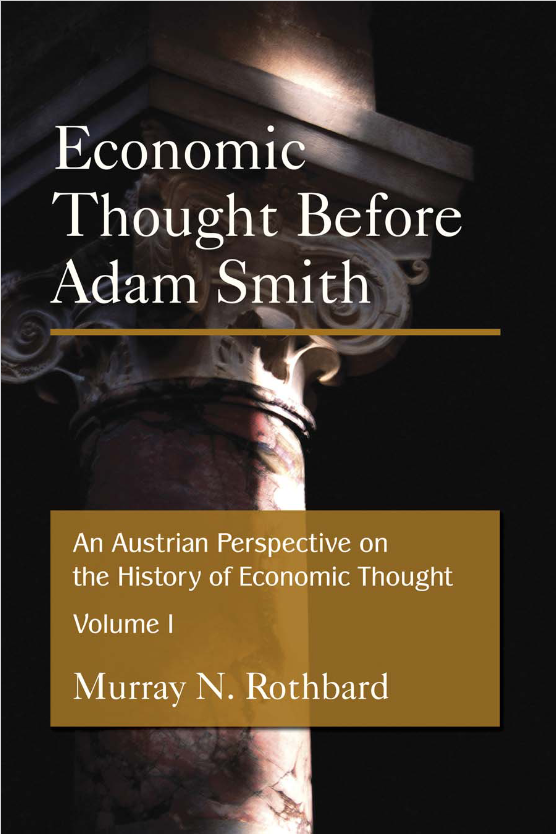Newly released
This book is new and will be uploaded as soon as it becomes available to us and if we secure the necessary publishing rights.

Economic Thought Before Adam Smith: Volume 1 Book PDF
(0)
Author:
Murray RothbardNumber Of Reads:
74
Language:
English
Category:
Social sciencesSection:
Pages:
574
Quality:
excellent
Views:
960
Quate
Review
Save
Share
Book Description
This is the first extensive treatment from a modern Austrian perspective of the history of economic thought up to Adam Smith and as such takes into account the profound influence of religious, social and political thought upon economics.
In Economic Thought before Adam Smith, Murray Rothbard contends that laissez-faire liberalism and economic thought itself began with the Catholic scholastics and early Roman and canon law, rather than with Adam Smith. The scholastics, he argues, established and developed the subjective utility and scarcity theory of value, as well as the theory that prices, or the value of money, depend on its supply and demand. This continental, or 'pre-Austrian' tradition, was destroyed, rather than developed, by Adam Smith whose strong Calvinist tendencies towards glorifying labour, toil and thrift is contrasted with the emphasis in scholastic economic thought towards labour in the service of consumption.
Tracing economic thought from the Greeks to the Scottish Enlightenment, this book is notable for its inclusion of all the important figures in each school of thought with their theories assessed in historical context. Classical Economics, the second volume of Professor Rothbard's history of economic thought from an Austrian perspective, is also available.
Murray Rothbard
Murray Newton Rothbard was an influential American historian, natural law theorist and economist of the Austrian School who helped define modern libertarianism. Rothbard took the Austrian School's emphasis on spontaneous order and condemnation of central planning to an individualist anarchist conclusion, which he termed "anarcho-capitalism".
Book Currently Unavailable
This book is currently unavailable for publication. We obtained it under a Creative Commons license, but the author or publisher has not granted permission to publish it.
Rate Now
5 Stars
4 Stars
3 Stars
2 Stars
1 Stars
Economic Thought Before Adam Smith: Volume 1 Quotes
Top Rated
Latest
Quate
Be the first to leave a quote and earn 10 points
instead of 3
Comments
Be the first to leave a comment and earn 5 points
instead of 3